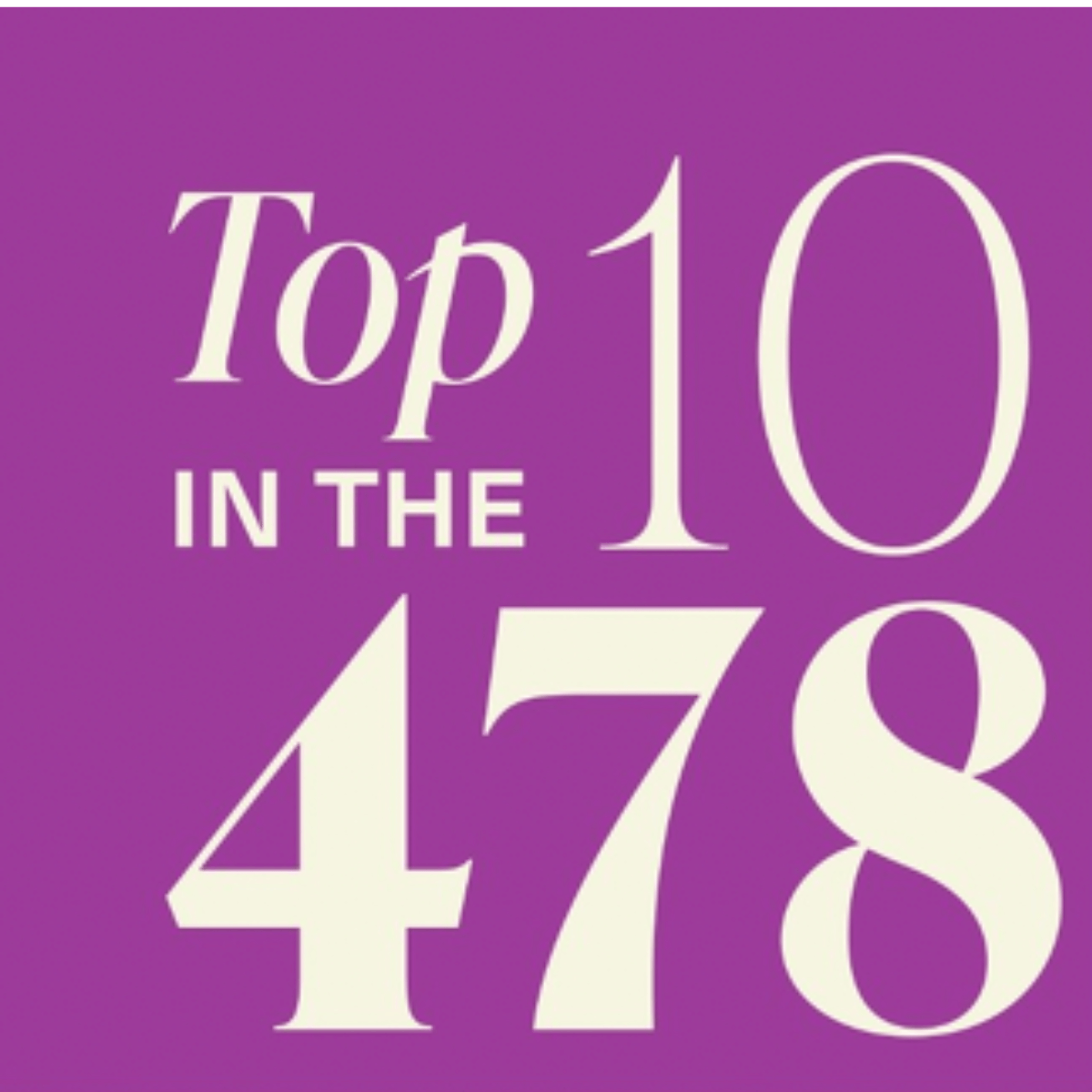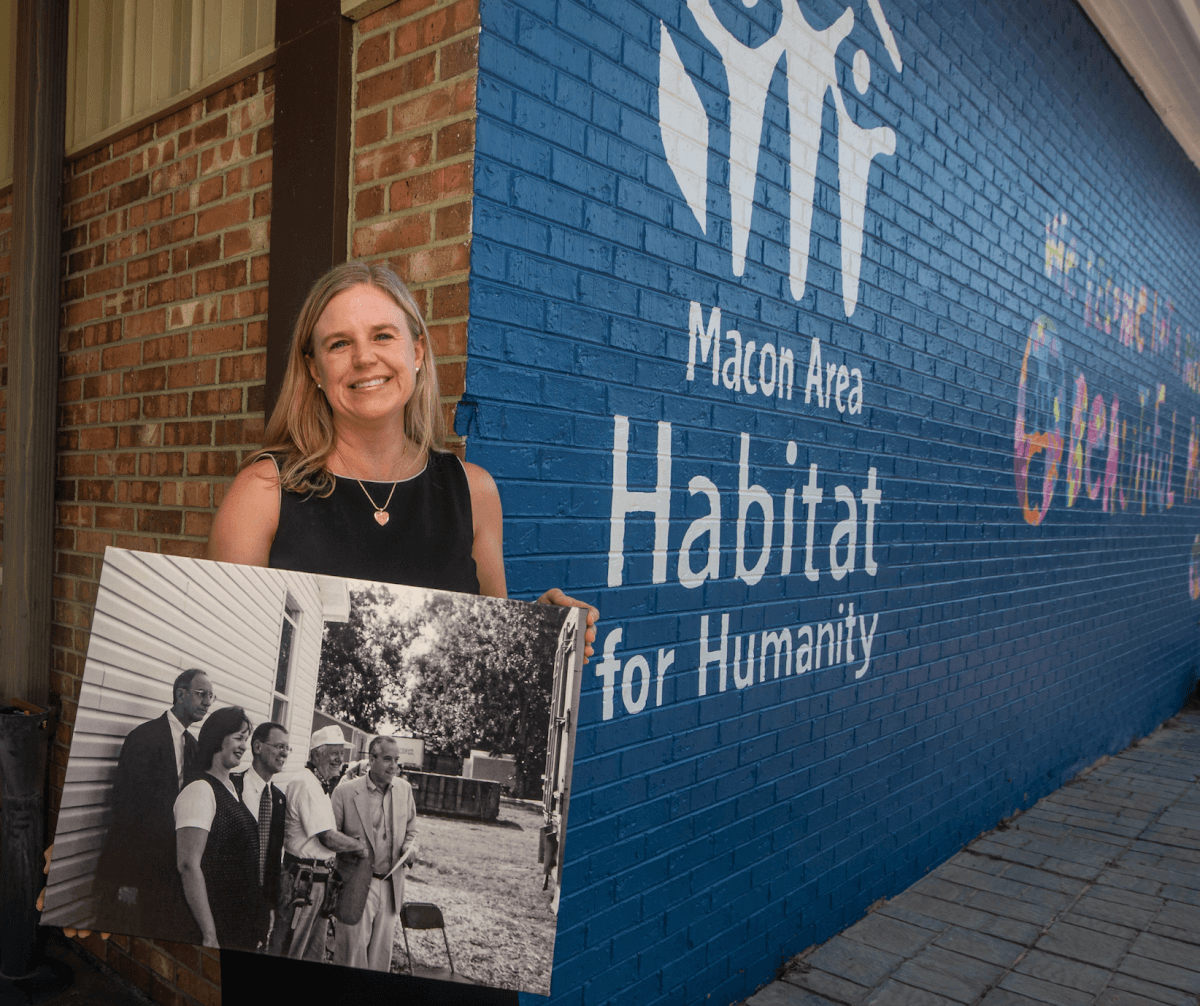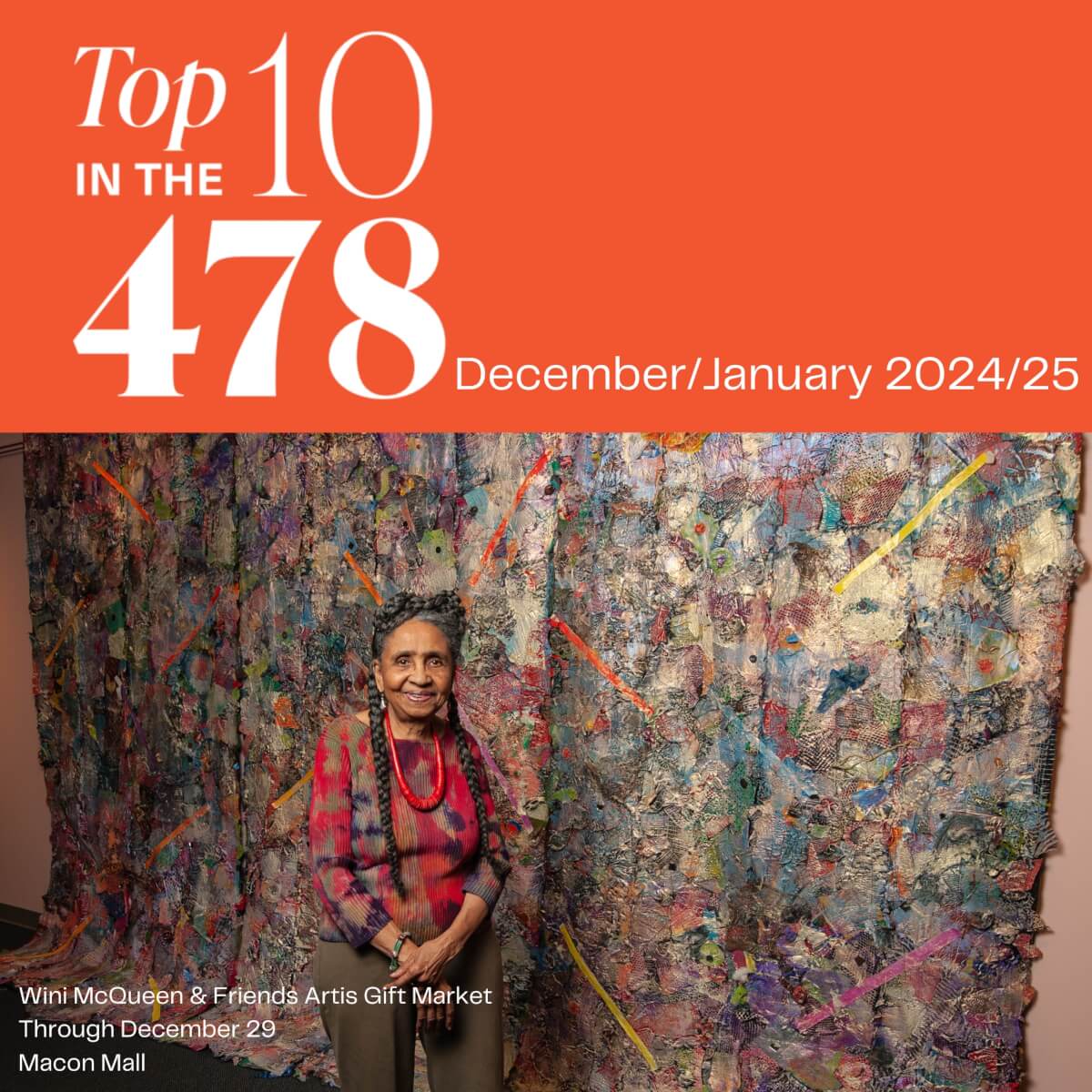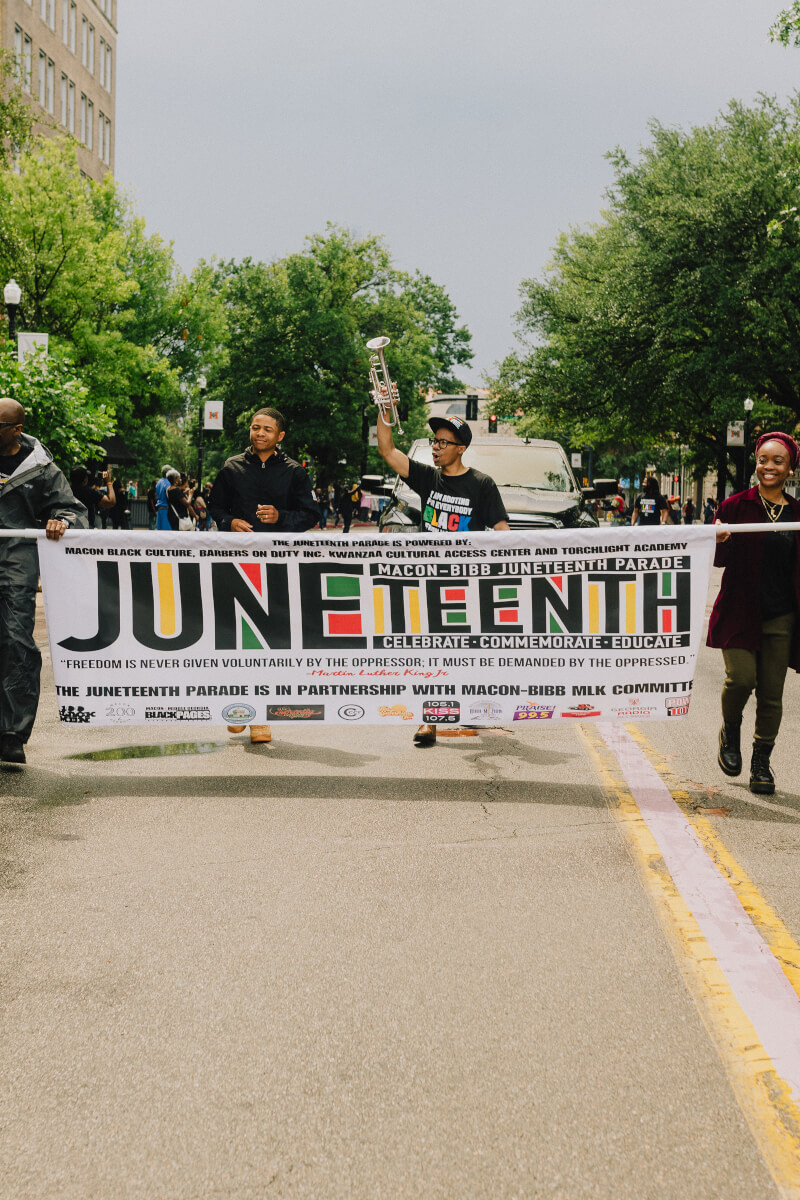
Juneteenth 2024: why and how Maconites commemorate Freedom Day
STORY BY CLARENCE W. THOMAS, JR.
PHOTOS BY JAY MCCLENDON OF KREATIVE MEDIA GROUP, COURTESY OF MACON BLACK CULTURE
Galveston, Texas – 1865
Imagine toiling in the hot fields of a plantation in Galveston, Texas, in June 1865, under the watchful eye of an overseer with the power of life or death in his grip. You’re one of 250,000 Black Texans still enslaved and laboring for free, just as your ancestors have done forcibly for centuries. The Emancipation Proclamation was signed nearly 30 months ago, and Confederate forces surrendered last April. But a proclamation is just a slip of paper until the overseer is made to comply.
Then a powerful force of federal troops suddenly arrives to serve a notification from the desk of the President saying that you, too, are now free, just as others around the country had been freed over the past two and a half years.
With this news, how could you not scream and shout thanksgiving and celebrate? That reaction is the root of Juneteenth.
Juneteenth is born and lives on
The following year, the revival of those shouts of joy, and remembrance of the hardships that preceded them, began as Galveston’s freedmen hosted activities on the anniversary of their Freedom Day – June 19, 1865, called Juneteenth. The Smithsonian Museum describes those men and women: “With the principles of self-determination, citizenship, and democracy magnifying their hopes and dreams, those Texans held fast to the promise of true liberty for all.” The holiday began to take hold in the land of the free-at-last, giving strength to hope that the founding principle would someday fully ring true.
Today Juneteenth is acknowledged as the oldest known holiday commemorating the end of slavery in America. For the past 150 years, the tradition has continued and spread across the nation, but it wasn’t always easy to gather in remembrance.
Despite abolition, anti-gathering laws and other safety concerns remained in place for African Americans, especially during Jim Crow. The holiday wasn’t taught in schools, and state and local governments weren’t disbursing resources in honor of the tradition, so grassroots organizing has been the key to Juneteenth’s longevity.
44 years ago, Juneteenth became a Texas state holiday, but it wasn’t until 2021 that it was recognized federally. This change came in the wake of the 2020 nationwide protests against police brutality, which amplified public awareness of the challenges people of color face in America. Alongside a push for policy change, acknowledging our nation’s history – its achievements and its flaws – through cultural events like Juneteenth symbolizes a commitment to seeking wisdom from our past and finding resilient joy in our present and future.
In Macon, that resilience has been building for generations, and honoring Juneteenth as a cultural event for the whole community began 32 years ago.
1992 marked the first official Juneteenth Freedom Festival in Macon, sponsored by Kwanzaa Cultural Access Center, Inc., and Torchlight Academy, Inc. (KCAC/TLA). KCAC/TLA shares on their website that the site chosen for the festival is significant; Tattnall Square was where Macon’s Confederate forces surrendered on April 20, 1865. They also note that Bibb County did not issue a formal proclamation of emancipation until the following July, when the Freedman’s Bureau arrived in Macon. This was nearly a month after Union General Gordon Granger arrived with armed troops – many of them United States Colored Troops, Galveston historian Sam Collins told NPR – to wrest Galveston from Confederate holdouts.
While the roots of Juneteenth aren’t easy to contemplate, there is joy to be found. Black joy – and joy for people of any race who support liberty for all. In Macon, there will be singing, dancing, educating, art, food, and vibrant culture, welcoming freedom with joyful noise and community.
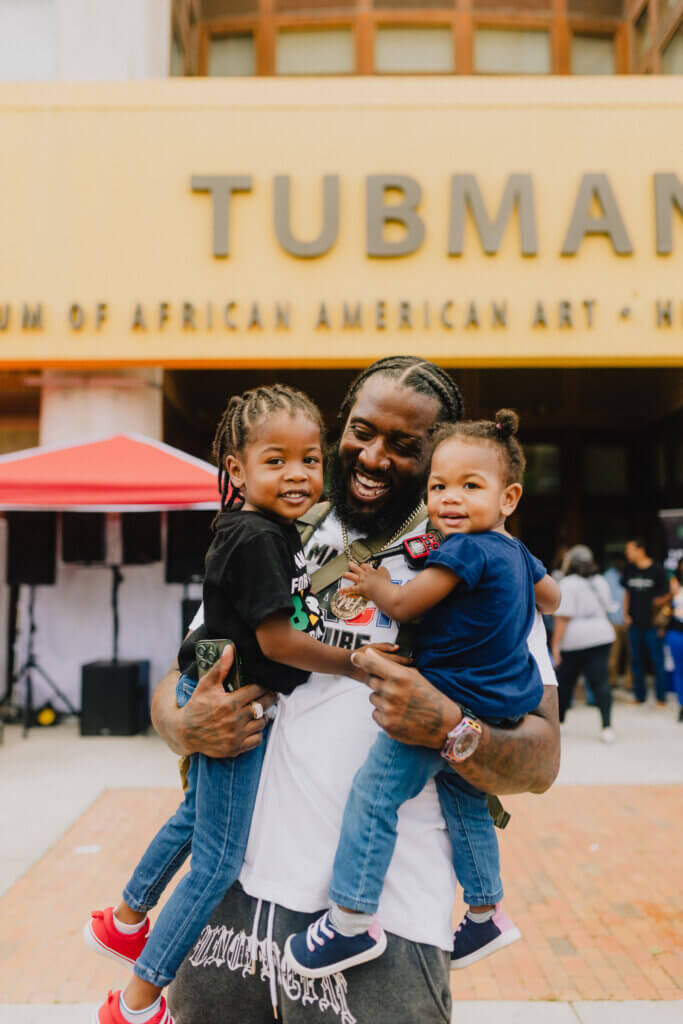
MBC board member Brandon Harris and his children celebrating Juneteenth 2023.
How Maconites will celebrate this year
For 32 years, KCAC/TLA has crafted activities designed to spotlight Black people’s sojourn in America. The festival has aimed to educate locals about Juneteenth, stimulate conversations and positive reactions, and remind residents of the Black community’s resilience and resourcefulness as key contributors to America’s development. This year’s Juneteenth Freedom Festival and Georgia Juneteenth Week are scheduled for June 7-16.
The organization has a great presence in the Pleasant Hill Neighborhood Reunion. Its sponsored events include a Genealogy Workshop, a Nature Walk for Peace & Wisdom, van tours, and a Hip Hop Neighborhood Tour and Summit. The highlight of the KCAC/TLA Juneteenth week is the festival in Tattnall Square Park June 15 and 16.
George F. Muhammad is the co-founder and president of KCAC. He says the annual celebration is a reminder that perfect liberation, especially for Black people and all people, must be relentlessly pursued until it’s achieved. “Commemoration of Juneteenth is very necessary because we have so much to awaken to, learn, appreciate, and build upon historically in Middle Georgia,” he added.
Last year, Macon Black Culture (MBC), led by a new generation of community leaders, including Muse Dixon, Brandon and Nadiyah Harris, Marshall Talley, Amber T. Jones, and Jarvis Adside, presented the first ever Juneteenth Parade, joining KCAC/TLA. MBC has expanded their celebration and in addition to the return of the parade on June 16, the organization added a gala and junior debutante presentation, mixer, Black Business Crawl, Live Podcast, wellness retreat, and fundraiser. MBC will partner with Storytellers Macon for a Juneteenth version of their performance platform, and tie off its activities with a barbecue and fireworks show.
This year’s parade Grand Marshals are Zelma Redding and Karla Redding-Andrews, who expressed their desire for the community to use Juneteenth as an opportunity to admire how far we have come and where we are going in Macon and throughout the world.
With the theme “Black Girl Magic” as the anchor of their activities and the Storytellers show, Macon Black Culture will also honor three local living legends and two posthumously: Commissioner Elaine Lucas, M.A. Evans Grade School founder Lillie Ruth Gantt-Evans, and Gloria Cisse with Southern Center for Choice Theory and Macon Mental Health Matters, along with the late Ruth Hartley Mosley and WMAZ-TV news anchor Tina Hicks. These icons are receiving awards for the indelible marks they made on the community.
“It’s such an honor to be recognized. I serve because it is my duty to give back. I hope that my works speak for me,” said Lucas. “Sometimes I think that I am not visible but, in these instances, I’m reminded that what I do is not in vain,” added Cisse.
Lucas and Cisse were also asked by Macon Magazine what Juneteenth means to them, along with other notable members of the Macon community.
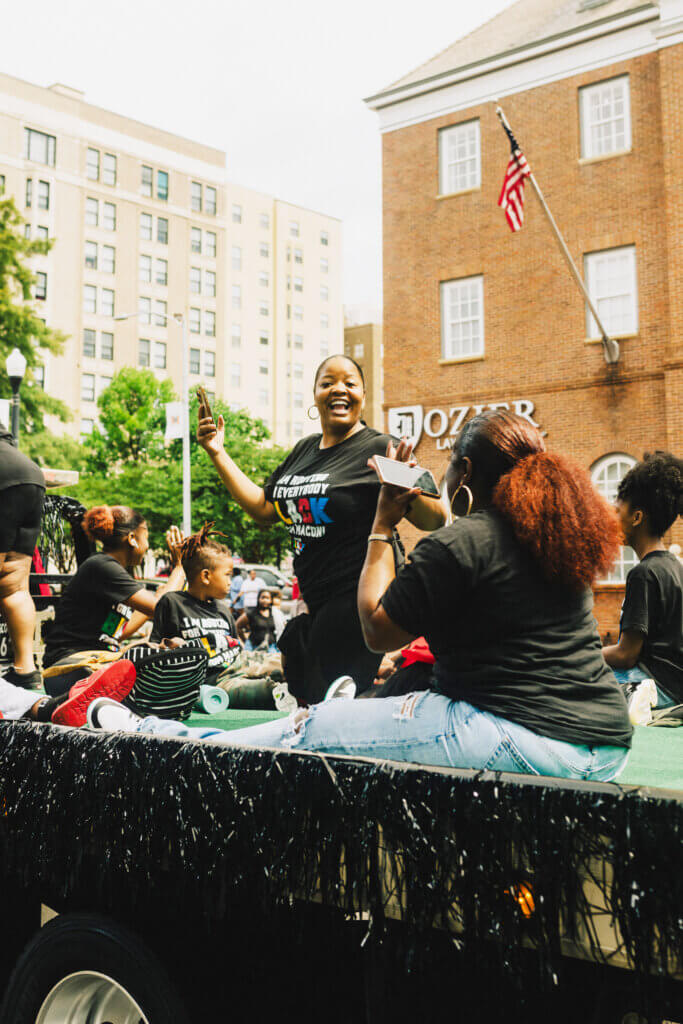
2023 parade participants aboard a float on Cherry
Street, including Kim Talley, center.
Maconites say: What Juneteenth means to me
“As a descendant of formerly enslaved people raised in the deep South, Juneteenth is an opportunity to remember the sacrifices of my ancestors who died for to have a chance to live and those ancestors who chose to live so that I might have a chance to be the actualization of their wildest dreams.” — Gloria Cisse; Southern Center for Choice Theory co-founder
“Juneteenth symbolizes the spirit of resilience and the pursuit of freedom in the face of adversity. It’s a poignant reminder of both triumphs and struggles of American history. For me it’s a celebration of liberation, a reflection on the journey towards equality, and a call to honor the sacrifices made by past generations.” — Gerri McCord; former executive director of the Ruth Hartley Mosley Women’s Center and first Black board chair of the Historic Macon Foundation
“For us, Juneteenth is not just a celebration, but another reminder of America’s complicated history as it relates to African Americans. It’s a reminder that we endured slavery, Reconstruction, Jim Crow, the Civil Rights era and beyond. As we celebrate, we must remember ourselves as the strong, resilient, intelligent, ingenious people we really are – that made remarkable and meaningful contributions not just to the building and uplifting of Macon, but to the entire world.” — Steve and Marie Duval; entrepreneurs, educators, historians
“Juneteenth represents a time to seek out greater knowledge of, study, and reflect upon the deepest truths of our history. It is a time to learn of, honor, and build upon the greatness of our ancestor’s suffering, endurance, sacrifices, achievements, and gifts. — George F. Muhammad; co-founder and president of Kwanzaa Cultural Access Center, Inc.
“Enslavement stripped Black folks of our African culture. Much of our existing culture was created from the struggle and conditions of American slavery. For me Juneteenth is a beginning and an understanding that I’m not defined by others or confined by my conditions because like my ancestors, I define myself.” — Weston Stroud; Macon-Bibb County Traffic Safety Manager
“Juneteenth embodies the strength and resilience of the Black experience. It illuminates the systematic and structural challenges endured by generations of Black people. It stands as a celebration of our identity and heritage.” — Zelma Redding and Karla Redding-Andrews; spouse and daughter of Otis Redding, Jr.; president and vice president of the Otis Redding Center for the Arts, respectively.
“Juneteenth is the spirit and a celebration of times that could not be acknowledged, of people who could not be revered, customs that could not be respected, and history that could not be written down. Juneteenth is the acknowledgement of the good and bad, but also the expression of human beings and their desire to be free forever.” — Elaine Lucas, Macon-Bibb County Commissioner
“It’s an opportunity for me to celebrate and recognize the freedom of our ancestors with others, while educating current and future generations about the racial disparities and inequities that our ancestors had to overcome. It’s also a ‘self-liberating’ movement that inspires me to keep pushing and to appreciate the small wins in life.” — Shelton Land; executive director of the historic Douglass Theatre
Visit juneteenthmacon.com for full event listings, ticketing, and other information about the festival, or find Kwanzaa Cultural Access Center on Facebook. For parade info and MBC events, visit maconblackculture.com.




